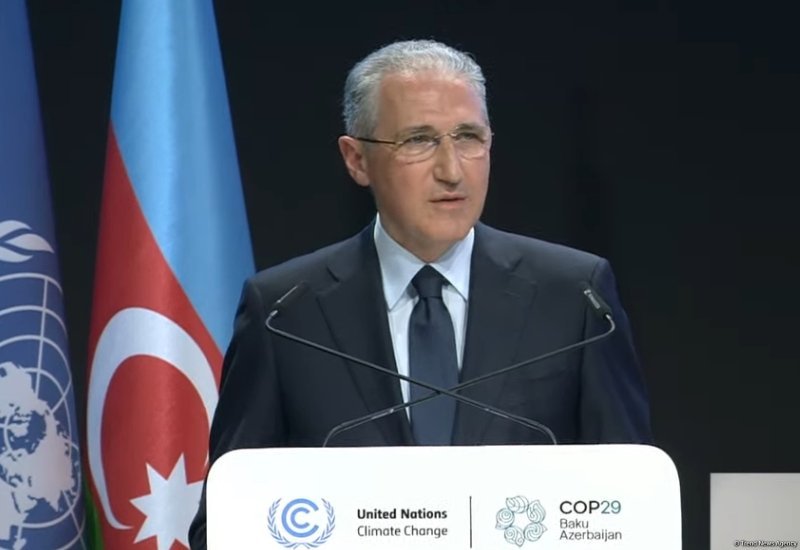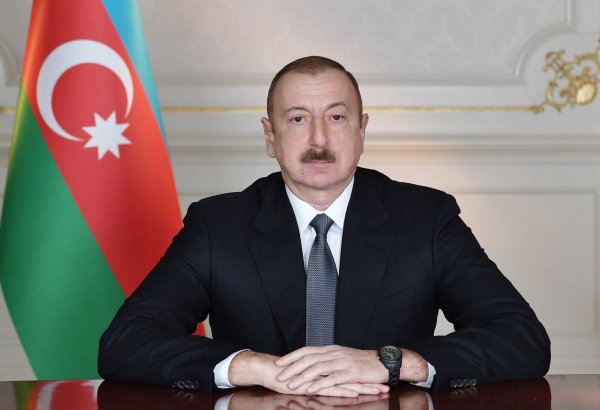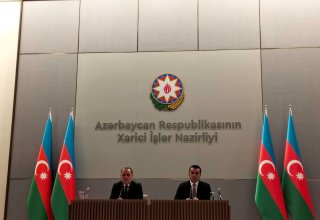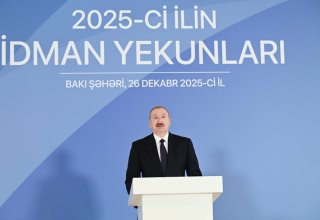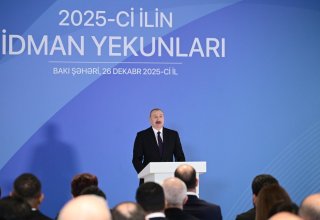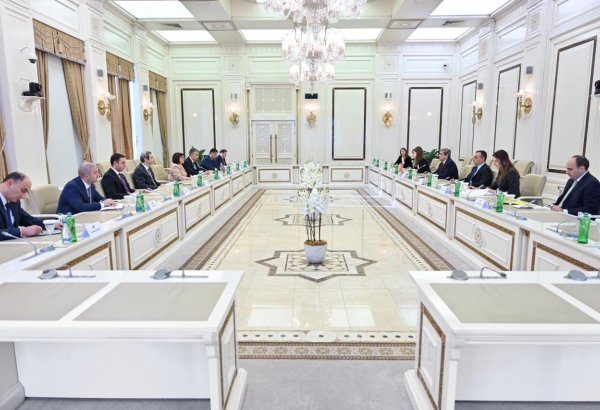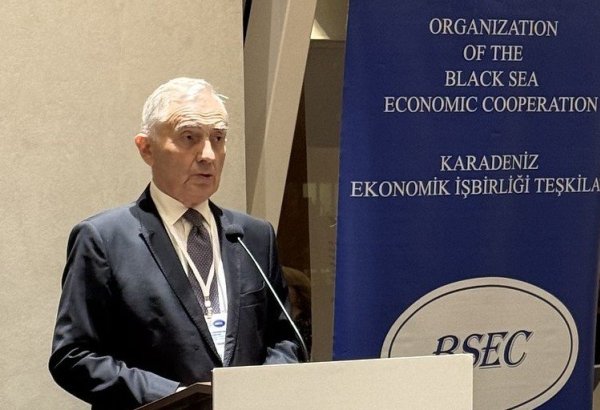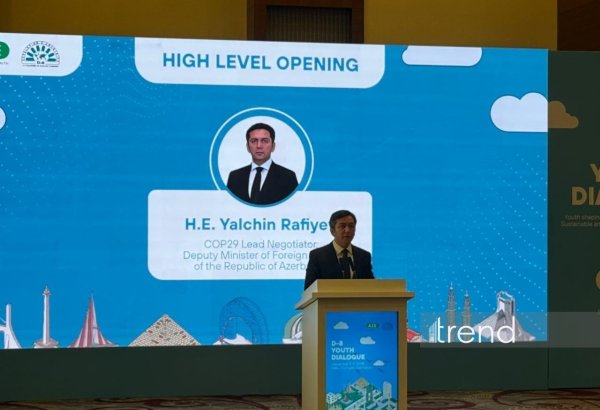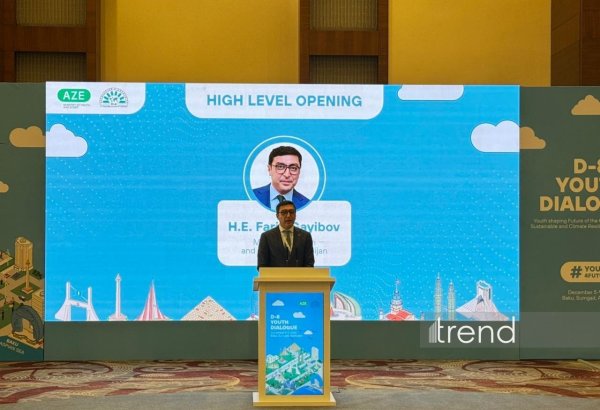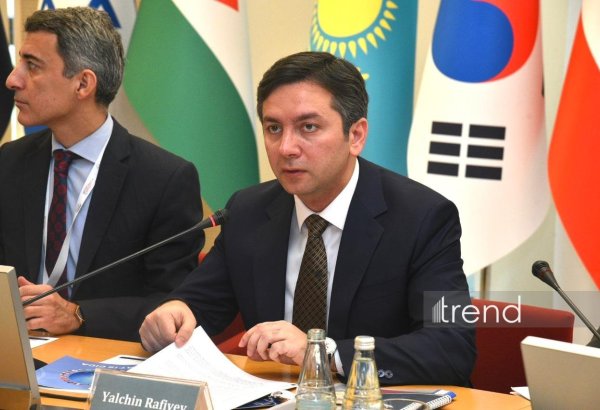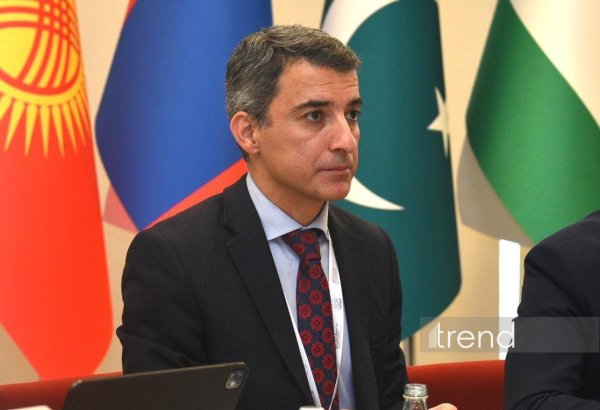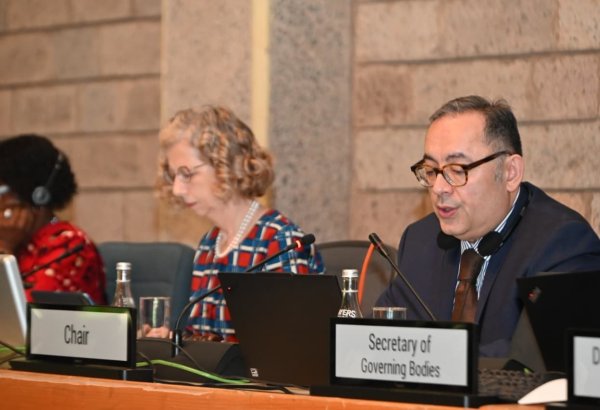BAKU, Azerbaijan, November 20. Over half of the global population currently resides in cities, COP29's President and Minister of Ecology and Natural Resources of Azerbaijan Mukhtar Babayev said at the high-level opening ceremony on Multilevel and Multisectoral Climate Action at COP29, TurkicWorld reports.
He noted that urban populations are projected to grow by more than 500 million people in the next 5-7 years, which in turn will put even more pressure on urban infrastructure, including electricity, water, transportation, sewage, and roads.
"Urban centers are responsible for more than 70 percent of global CO2 emissions. A large proportion of city dwellers live in areas that are highly sensitive to climate impacts. By 2050, more than one billion people in low-lying cities and towns will face the risk of rising sea levels.
The COP29 Presidency is today pleased to announce its multi-disciplinary declaration of action, Pathways to Sustainable and Healthy Cities. This initiative aims to adapt multi-level interventions, transforming urban spaces into centers of sustainable development and climate leadership. It serves as a call for clear action, encouraging national governments to join forces with private and public stakeholders and work closely together to achieve these goals. Multi-level cooperation is important. National policies should be transformed into strategies that can be implemented at the local level," he said.
Babaev emphasized that cities and regions need tools, finance, and authority to implement climate solutions tailored to their unique and specific context.
"Urban climate finance is also an important issue. Expanding investments in urban infrastructure, energy-efficient buildings, and sustainable transportation systems requires innovative financing mechanisms and stronger partnerships," he added.
To note, the 29th session of the Conference of the Parties to the UN Framework Convention on Climate Change (COP29), which will run until November 22, opened at the Baku Olympic Stadium on November 11. It is the largest event organized by Azerbaijan to date, and the first time in the region that it is being held in Azerbaijan.
Within COP29, the highest-level event - the summit of world leaders on climate action - was held on November 12–13.
The main expectation from COP29 is to agree on a fair and ambitious New Collective Quantitative Goal (NCQG) on climate finance. The COP29 Presidency has launched 14 initiatives that include linkages between climate action and the Sustainable Development Goals, including green energy corridors, green energy storage, harmony for climate resilience, clean hydrogen, methane reduction in organic waste, action on green digital technologies, and other topics.
In addition to being a top priority that creates the conditions for action, creating climate finance will also help fulfill the 1.5°C pledge by bringing everyone together.
The UN Framework Convention on Climate Change is an agreement signed at the Rio Earth Summit in June 1992 to prevent dangerous human interference in the climate system. The acronym COP (Conference of Parties) stands for "Conference of Parties" and is the highest legislative body overseeing the implementation of the Framework Convention on Climate Change.
A total of 198 countries are parties to the Convention. Unless otherwise decided by the parties, COP is held annually. The first COP event was held in March 1995 in Berlin, and its secretariat is located in Bonn.








